Jane Austen, Call Your Office
Devra Torres | Feb 8, 2015 | 2 cmts
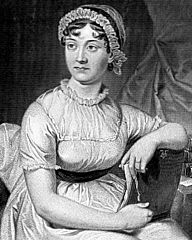
Jane Austen novels have grown popular enough to spawn a veritable industry. Sequels and retellings pop up regularly, as do films based on the originals, and also odd spinoffs—everything from made-for-YouTube vignettes to vampire-“literature”-inspired versions.
What's the appeal?
Some hail Austen as a feminist before her time who proclaimed that women shouldn't be limited to pining or scheming for a wealthy husband before marriage and then pining or scheming for wealthy sons-in-law afterwards—all the while turning out astonishing quantities of needlework but accomplishing little else.
Others are fond of Austen because they would like to return to an age when the rules of propriety were so clear-cut that many evils were avoided altogether, or at least well hidden. But the regulation of manners was so convoluted that speaking your mind was a perilous business. Class consciousness further hindered spontaneity: if you didn't avoid frankness for fear of wounding somebody’s sensibilities, you’d probably avoid it anyway for fear of being suspected of not knowing your place, or misinterpreting somebody else’s.
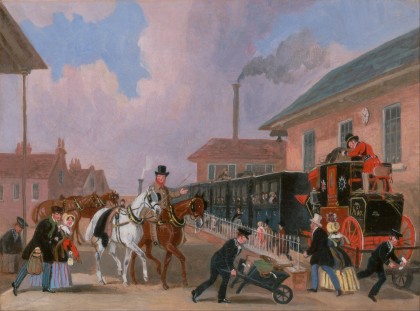
Or maybe that’s just my 21st-century assumption. Maybe the unwritten rules were so internalized that people were not so much continually squelching anti-social thoughts as not being troubled by them in the first place. Anachronism is an ever-present peril with literature from another age.
I’m reading Mansfield Park these days—an atypical Austen novel because of both its length and its conspicuous lack of a spunky, self-confident heroine. I’m enjoying it, but not for either feminist or anti-feminist reasons (though I realize I wouldn't last five minutes in an age that required modulating my voice, cultivating my “air,” and pouring any residual creativity into needlework and needlework alone.)
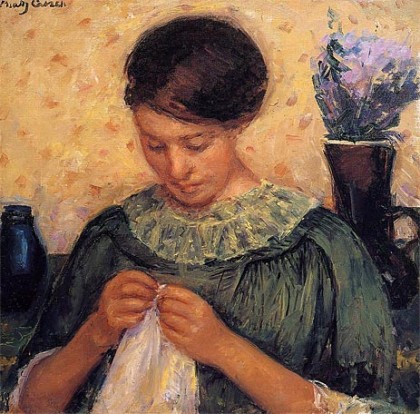
The heroine of Mansfield Park, Fanny Price, is transplanted into the house of her wealthy cousins and raised there as a sort of cross between a lower-level daughter and a charity case.
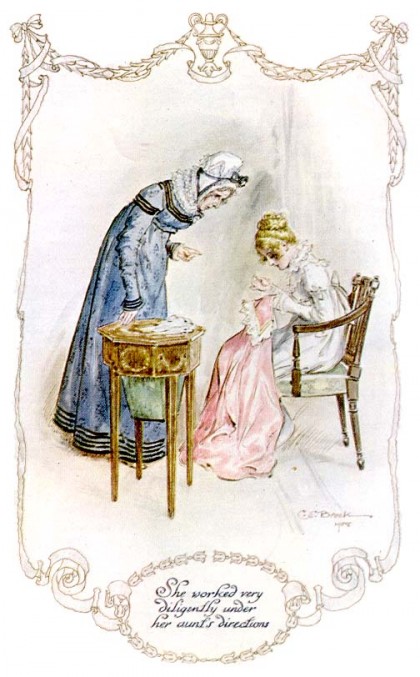
The head of the family, Sir Thomas, is a benevolent but rule-bound sort of man with very fixed ideas of propriety. He doesn't exactly try to force his daughter Maria into a loveless marriage. He doesn't exactly oblige Fanny to accept the proposals of a man who turns out to be unworthy of her, nor does he outright forbid her to fall in love with his son Edmund. But he certainly sees it as his duty to manipulate all of his charges for their own good.
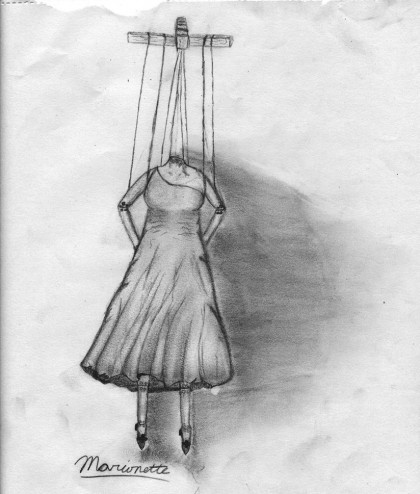
He doesn't quite insist on making their decisions for them, but he sees a certain amount of heavy-handed guidance as not only desirable but beneficent.
Events make it clear that such well-meant heavy-handedness is bound to end in disaster. Maria marries a man she despises and then betrays him and ends up miserable. Fanny stands up for herself for once and refuses to be pressured into accepting the proposal of a man she doesn't love (and is eventually rewarded by living happily ever after with the one she does).
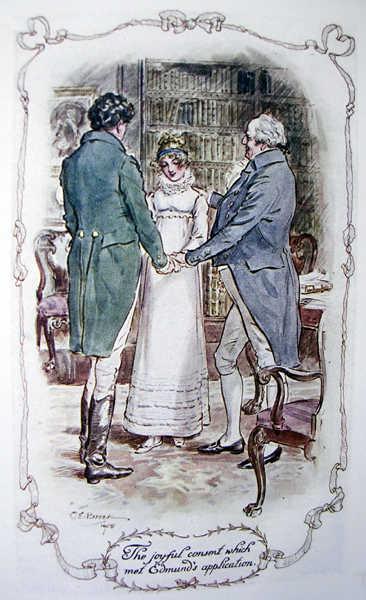
The message, you might say, is a personalist one: interference with other people’s inner lives, no matter how kindly meant, will end badly. Concern for outward propriety must have its limits.
So you’d think our society, with its professed love of authenticity and its antipathy for rules of decorum, would be really, really good at producing people who fearlessly decide for themselves, "'protagonists' in the drama of our own lives," an oft-repeated phrase of St. John Paul II's, as Katie reminds us here.) After all, we don't hide anything: we plaster our inner lives, or a caricature of them, all over Facebook. We text and Instagram our most private moments all over the place. We invented reality TV. We'll say and do just about anything, and the more public the forum, the better. We're not about to let anybody tell us what to do.

Or are we?
Listen to this--from Katie’s latest post, quoting Pope Francis:
Men and women today experience serious identity problems and have difficulty making proper choices; as a result, they tend to be conditioned and to delegate important decisions about their own lives to others. We need to resist the temptation of usurping individual freedom, of directing them without allowing for their growth in genuine maturity. Every person has their own time, their own path, and we must accompany this journey. Moral or spiritual progress which manipulates a person’s immaturity is only an apparent success, and one destined to fail.
Isn't this kind of manipulation, this imitation moral and spiritual progress, exactly what we worked so hard to got rid of? We jettisoned the rules of propriety, but it turns out that removing external constraints is not all it takes to galvanize our inner freedom. Even the language of Facebook and Twitter gives us away: we define ourselves by whom we "follow," or by how many people follow us. Our laws are more and more intrusive and our state more and more inclined to nanny-ism. Students are claiming the "right to be comfortable" instead of the right to be free.
It looks like what we need, as Daffy Duck might say, is to go back to the old drawing board.

Being the true protagonist of your own story means not just getting rid of structures and constraints until all that's left is a vacuum. Freedom comes from within, but we still can't avoid the question "Freedom for what?"
So what's Jane Austen's appeal? For me it's partly the interplay of the characters' inner freedom with the structures and unwritten rules of society. There's counterfeit freedom and there's real freedom. There are structures that wreak havoc and injustice, and then there are others that foster virtue and the kind of constraint that helps you to become who you are.

If your only exposure to her is a forced perusal of Pride and Prejudice back in high school, you may want to give her another try. Or not. Do you love her? Do you hate her? What do you think?

Comments (2)
Katie van Schaijik
Feb 12, 2015 4:36pm
I think it was Mansfield Park that first gave rise to doubts about Jane Austen's world in me. I mean, I love the stories: the moral clarity of her vision, her wit, the romance. But sometimes I get so perturbed over the spiritual triviality of the characters' daily preoccupations that I can't enjoy the books. I don't know how men especially could stand to live in the society she describes (unless they joined the navy.)
I do love the way she illustrates the truth that a person can conform to convention without true moral seriousness. She knows and shows that the real worth of an individual lies deeper down, and has everything to do with their free, self-determining personal responses to the circumstances and crises they find themselves faced with.
One thing that she helps us all yearn for is more meaning and purposefulness in our words and gestures. Our society has gotten so confused and out of control.
Devra Torres
Feb 12, 2015 9:43pm
Yes, I know just what you mean about the men!
I guess the poorer people had plenty to fill their time, but it's hard to get a sense of what all the richer people do all day. Of course it's not just needlework: the women give their cooks and governesses instructions, and they seem to do a little piano playing and a little painting. They go for their daily walks, and they sometimes help the poor. And all those men who don't have to make a living--they go on business trips and manage their estates, and when the season comes around they all go to Bath and hang around there. Maybe it's my reverse snobbery.